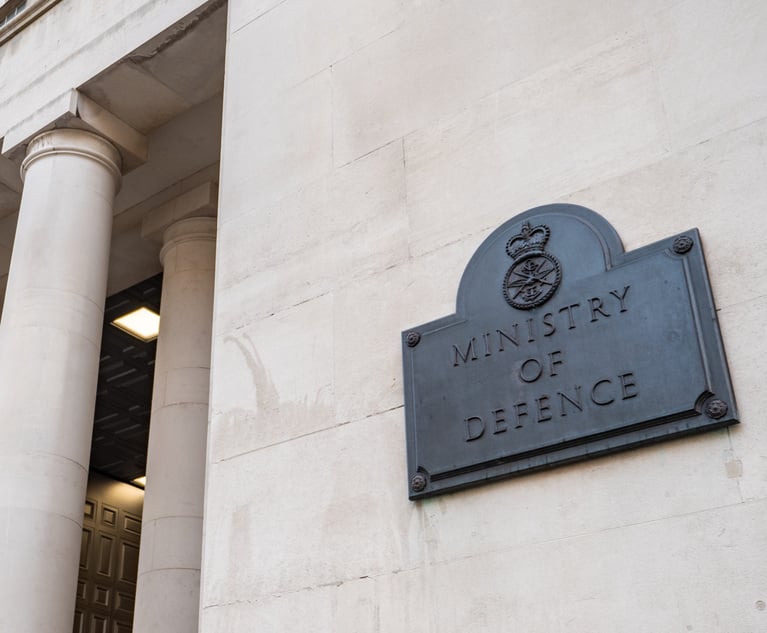Tougher Rules for Foreign Investment in Australia May Slow Deals
Australia is just one of several locations around the world that have tightened up its foreign investment rules in recent years.
June 11, 2020 at 06:01 PM
5 minute read
Tougher national security tests for foreign investors could slow the pace of some deals, lawyers say.
Under proposed rules that will take effect in January, foreign investors seeking to acquire a "sensitive national security business" will have to pass a new national security test, regardless of the value of the investment.
Previously, investors only faced scrutiny if an acquisition was above A$275 million or above A$1.2 billion for investors from countries with which Australia has a free trade agreement.
Under the new law, the treasurer will be given the power to vary or to impose conditions on a deal or force a divestment after the deal has been approved by the Foreign Investment and Review Board (FIRB).
Australia is just one of several jurisdictions to have tightened up its foreign investment rules in recent years. Over the past two years Japan, the United States, China, the European Union and New Zealand have all introduced tough foreign investment rules on national interest or national security grounds.
The Australian government hasn't yet defined what it means by "a sensitive national security business," but it has published an information booklet about the new rules, which states the definition will include media, transport and telecommunication businesses and companies providing infrastructure to those businesses.
The government said it will also "explore" the possibility of including other businesses, including critical infrastructure providers, defense industry businesses, and companies that own, store or collect data relating to national security or defense.
The result is that some deals might require more work and might take longer to complete.
"We'll probably be doing a little bit more, and I think that there will be some challenges around whether something is within or outside that different sensitive national security business, whether something conveniently falls into that definition or not," said Michael Parshall, a mergers and acquisitions partner at Allen & Overy in Sydney.
"I'm sure there will be certain things where there are sensitivities and which the Treasurer may not approve or may require conditions and undertakings to mitigate that risk."
But Parshall said he does not expect many more deals to be rejected.
"The bottom line is this thing is a review process. It's not necessarily a 'no,'" he said. "It's a measured and sensible approach of a sovereign state taking a legitimate interest in what sorts of foreign capital should be committed."
The proposed new Australian laws, which have yet to be passed by Parliament, come at a time of high tension between Australia and China, after Australia called for a WHO inquiry into the cause of the COVID-19 outbreak in China. This week China told its students to stay away from Australia because they were at risk of racist attacks—a move likely to damage one of Australia's largest export industries.
But government officials have stated that the new laws would apply to all countries equally and insist they do not specifically target Chinese buyers.
Ironically, the new law could result in a decline in work for lawyers advising on deals. In temporary laws currently in effect that are designed to ensure foreign buyers don't scoop up assets devalued by the COVID-19 crisis, the government cut the threshold for FIRB to scrutinize deals to zero.
At the same time that the new laws take effect Jan. 1, the FIRB thresholds will again rise to their pre-COVID-19 levels.
"The fact that we will go back to the normal thresholds, except for this relatively narrow category of deals, is actually really good news. And I think it will make other deals go much more smoothly than they're currently going right now," said Deborah Johns, a partner with Australian firm Gilbert + Tobin's corporate advisory group.
However, those deals that are captured by the new regulations might be slowed by the additional regulatory requirements, she said. "I suspect the bigger impact is just going to be on timing of transactions rather than whether they actually get done or not."
Even so, Johns noted that approvals for these deals won't be as extensive as it is for those deals that will continue to be scrutinized because they are above the old dollar-value investment thresholds. Those larger deals will have to pass a broader "national interest test," which includes impacts on competition, the economy and the community, as well as security considerations. The smaller deals will be subject only to a national security assessment.
While Johns doesn't expect the new regulations to halt many deals, one exception might be in the startup and venture capital space. If a deal to acquire a small startup is subject to a national security assessment, the transaction costs relative to the small deal size might make it uneconomic.
In addition, Baker McKenzie corporate partner Kate Jefferson said that if the conditions FIRB sets as part of its approval process for the acquisition of sensitive national security businesses are perceived as giving the government excessive operational oversight of the businesses, this could potentially reduce the amount of foreign investment coming into Australia.
But overall, the changes are unlikely to change Australia's reputation as an attractive destination for foreign investment, she said.
"In the most extreme case, the proposed powers for FIRB to be able to mandate new conditions on and/or order divesture of an asset following transaction completion could potentially result in sovereign risk rating issues, which would be problematic for foreign investors and thus could dissuade foreign investment into Australia," Jefferson said.
This content has been archived. It is available through our partners, LexisNexis® and Bloomberg Law.
To view this content, please continue to their sites.
Not a Lexis Subscriber?
Subscribe Now
Not a Bloomberg Law Subscriber?
Subscribe Now
NOT FOR REPRINT
© 2025 ALM Global, LLC, All Rights Reserved. Request academic re-use from www.copyright.com. All other uses, submit a request to [email protected]. For more information visit Asset & Logo Licensing.
You Might Like
View All
Hogan Lovells and Burges Salmon Secure Lead Roles in Largest Ever UK Defence Ministry Contract
2 minute read
Latham, Cleary, Clifford Chance Help Middle East Sovereign Wealth Funds Monetise Assets
3 minute read
‘The US Market Is Critical’: KPMG’s Former Head of Global Legal Services On the Big Four Firm’s Legal Arm Entering the US
6 minute readLaw Firms Mentioned
Trending Stories
- 1Midsize Firm Bressler Amery Absorbs Austin Boutique, Gaining Four Lawyers
- 2Bill Would Allow Californians to Sue Big Oil for Climate-Linked Wildfires, Floods
- 3LinkedIn Suit Says Millions of Profiles Scraped by Singapore Firm’s Fake Accounts
- 4Supreme Court Agrees to Hear Lawsuit Over FBI Raid at Wrong House
- 5What It Takes to Connect With Millennial Jurors
Who Got The Work
J. Brugh Lower of Gibbons has entered an appearance for industrial equipment supplier Devco Corporation in a pending trademark infringement lawsuit. The suit, accusing the defendant of selling knock-off Graco products, was filed Dec. 18 in New Jersey District Court by Rivkin Radler on behalf of Graco Inc. and Graco Minnesota. The case, assigned to U.S. District Judge Zahid N. Quraishi, is 3:24-cv-11294, Graco Inc. et al v. Devco Corporation.
Who Got The Work
Rebecca Maller-Stein and Kent A. Yalowitz of Arnold & Porter Kaye Scholer have entered their appearances for Hanaco Venture Capital and its executives, Lior Prosor and David Frankel, in a pending securities lawsuit. The action, filed on Dec. 24 in New York Southern District Court by Zell, Aron & Co. on behalf of Goldeneye Advisors, accuses the defendants of negligently and fraudulently managing the plaintiff's $1 million investment. The case, assigned to U.S. District Judge Vernon S. Broderick, is 1:24-cv-09918, Goldeneye Advisors, LLC v. Hanaco Venture Capital, Ltd. et al.
Who Got The Work
Attorneys from A&O Shearman has stepped in as defense counsel for Toronto-Dominion Bank and other defendants in a pending securities class action. The suit, filed Dec. 11 in New York Southern District Court by Bleichmar Fonti & Auld, accuses the defendants of concealing the bank's 'pervasive' deficiencies in regards to its compliance with the Bank Secrecy Act and the quality of its anti-money laundering controls. The case, assigned to U.S. District Judge Arun Subramanian, is 1:24-cv-09445, Gonzalez v. The Toronto-Dominion Bank et al.
Who Got The Work
Crown Castle International, a Pennsylvania company providing shared communications infrastructure, has turned to Luke D. Wolf of Gordon Rees Scully Mansukhani to fend off a pending breach-of-contract lawsuit. The court action, filed Nov. 25 in Michigan Eastern District Court by Hooper Hathaway PC on behalf of The Town Residences LLC, accuses Crown Castle of failing to transfer approximately $30,000 in utility payments from T-Mobile in breach of a roof-top lease and assignment agreement. The case, assigned to U.S. District Judge Susan K. Declercq, is 2:24-cv-13131, The Town Residences LLC v. T-Mobile US, Inc. et al.
Who Got The Work
Wilfred P. Coronato and Daniel M. Schwartz of McCarter & English have stepped in as defense counsel to Electrolux Home Products Inc. in a pending product liability lawsuit. The court action, filed Nov. 26 in New York Eastern District Court by Poulos Lopiccolo PC and Nagel Rice LLP on behalf of David Stern, alleges that the defendant's refrigerators’ drawers and shelving repeatedly break and fall apart within months after purchase. The case, assigned to U.S. District Judge Joan M. Azrack, is 2:24-cv-08204, Stern v. Electrolux Home Products, Inc.
Featured Firms
Law Offices of Gary Martin Hays & Associates, P.C.
(470) 294-1674
Law Offices of Mark E. Salomone
(857) 444-6468
Smith & Hassler
(713) 739-1250










